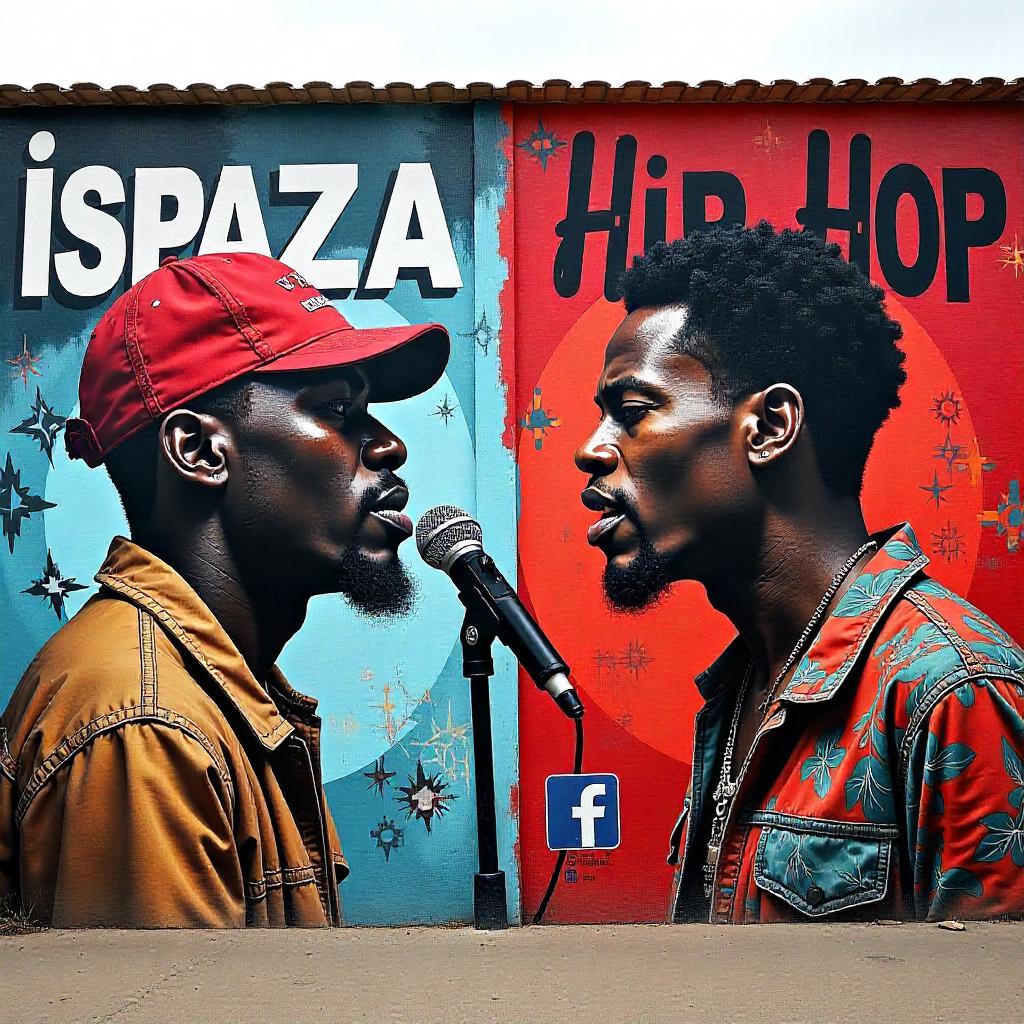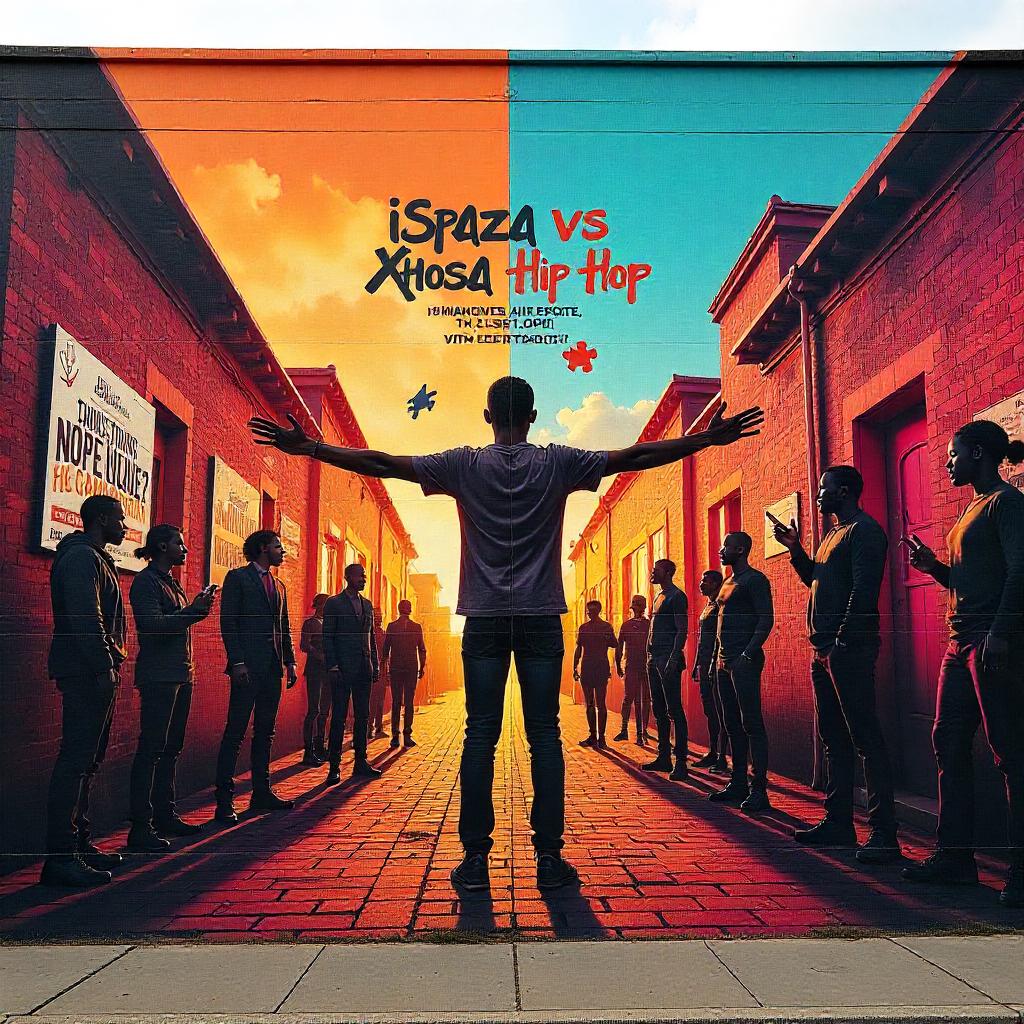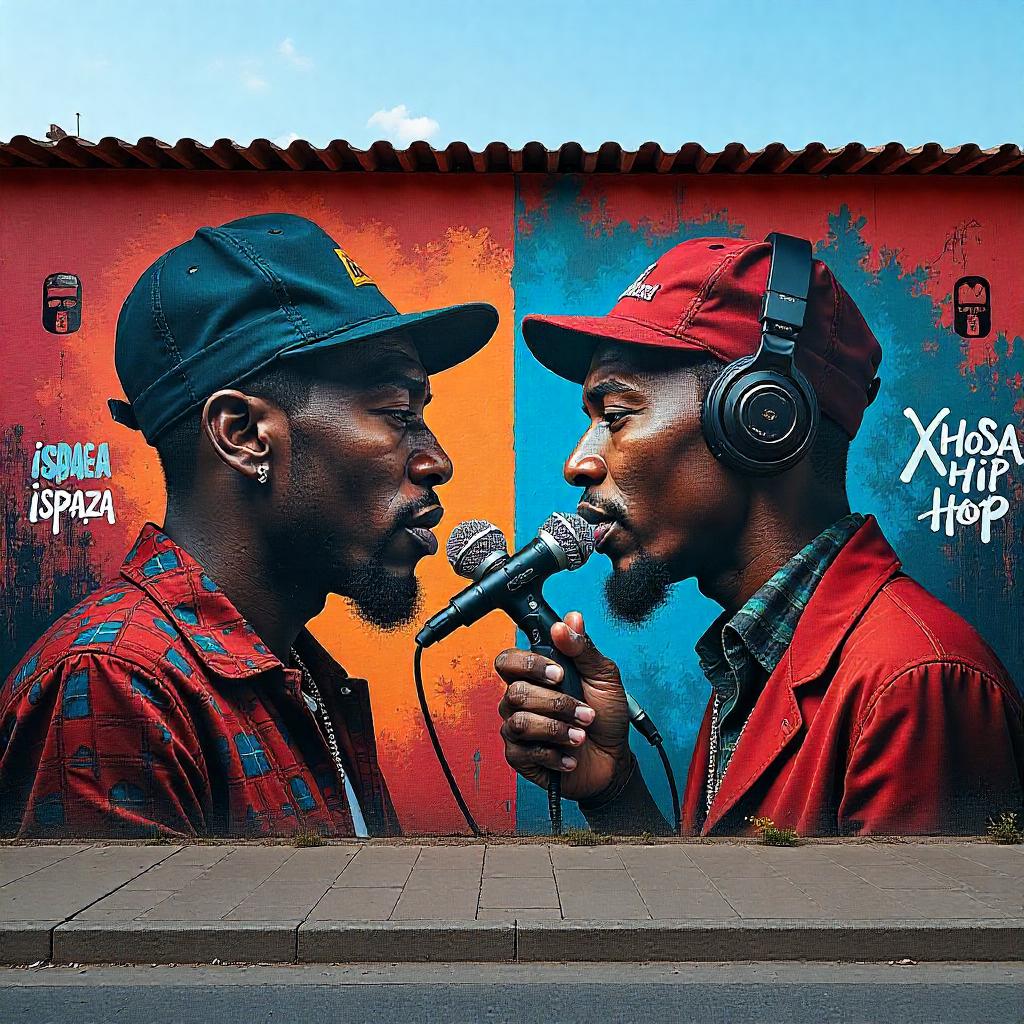iSpaza vs Xhosa Hip Hop... What's the Difference, Really?
asavela
23 May 2025
From the backrooms of Khayelitsha to global playlists, the sound of isiXhosa has evolved — but has it changed? This blog dives deep into the heart of iSpaza and Xhosa Hip Hop, tracing their roots, voices, and the rhythm that continues to fuel a generation. Featuring community voices, artist insights, and a side-by-side breakdown, this is the story of two names, one movement. ✊🏾🎤
iSpaza vs Xhosa Hip Hop: What's the Difference, Really?
Emerging from the dusty roads of Khayelitsha and the colorful roads of Mthatha, a new sound arose — raw, rhythm, revolutionary. Beginning as Spaza — very much a grassroots expression of township existence — it has evolved to become what a lot of people now know and label as Xhosa Hip Hop.
So, what is the difference between iSpaza and Xhosa Hip Hop?
We asked our Facebook group — Xhosa Hip Hop — and the responses rolled in. Passionate, authentic, and eye-opening. Here's what they said, with some background to understand how the culture evolved to where it is today.

🛤️ Where It All Began: The Beginnings of iSpaza
The early 2000s saw the emergence of iSpaza, and its pioneers Driemanskap, Kanyi Mavi, Phizo TKG, and Rattex spearheaded the revolution. This was revolutionary isiXhosa rap, cultivated in townships and backrooms, using music as a weapon of truth.
- 🧱️ "Spaza is the foundation. It's the basement of the house. Without it, the house of Xhosa Hip Hop collapses." – Thando Kwenama
It was raw because it had to be. Studios weren't an open option. But the lyricism? Cutting sharp. The messages? Unadulterated. The impact? Unquestionable.
- 🔥 "The hunger you hear in Spaza… you don't hear that in many artists today. It's pure." – Litha Mapuma
🏪 The Roots: A Kasi Corner Store of Culture
Several respondents took the word iSpaza back to its township origins — the unofficial corner shop where one can purchase soup and cement.
"That's where the name comes from — because everything is mixed. Languages, ideas, concepts. You find poetry, rhymes, politics, spirituality — all in one."
— Community member
As a spaza shop stocks whatever the community needs, so did iSpaza music become a storehouse of stories — uncut, unfinished, and grounded in reality.
🚀 Evolution: From Kasi Cyphers to Radio Singles
The 2010s opened a new chapter. iFani, Anatii, and Yanga Chief commercialized isiXhosa rap. Their music reached radio, TV, and streaming charts, introducing isiXhosa lyrics to new audiences across South Africa and the world.

- 📻 "Without artists like iFani or Yanga, my little brother wouldn't even know Xhosa rap exists." – Nosipho Mbele
Others, however, felt that the glamour came at the cost of depth.
- 🧘🏾 "There's depth of spirituality in Spaza. Clean Commercial Xhosa Hip Hop, but occasionally soulless." – Ayabulela Tshezi
Still, the torch was being passed — not losing its light.
🤔 Is it Really That Different?
One of the most prevalent sentiments that continued to surface was that both terms — iSpaza and Xhosa Hip Hop — are talking about the same entity: Hip Hop in isiXhosa.
"What the fuck is Xhosa Hip Hop? Cz akho Zulu Hip Hop or Pedi Hip Hop. It's just Hip Hop, dawg!"
— Mthuthuzeli Jongosi
This view is raising an eyebrow regarding why something already a branch of hip hop should be re-typed. Language, in their view, doesn't qualify it as a new genre — it just adds spice.
🌍 The Rise of the Facebook Community: A New Era
At this critical change, a new virtual home was constructed: Xhosa Hip Hop, a Facebook page created by Ayabonga Qwabi. This page presented a platform for all generations and all genres of music — unifying all under one name: Xhosa Hip Hop.
"This page changed the way we speak about Xhosa rap. Now, Spaza to studio singles is welcome here." – Bonga Ndongeni
Due to its inclusive nature, most fans currently even call the whole genre Xhosa Hip Hop, even the ones who grew up using Spaza.
- 📡️ "People used to mock your mic quality. Now, on this platform, they'll support you regardless — that's Xhosa Hip Hop." – Simphiwe Gxotiwe
🧠️ From Gangster Taal to Growth

It is a fact that iSpaza was previously associated with gang-related and aggression news. That persona made other people think poorly of the genre. But time has evolved the music.
"People who used to say 'no one listens to Xhosa rap' now celebrate it. IsiXhosa in hip hop is up!"
— Anonymous commenter
Presently, artists like Pzho, Pro X, Qhama, and Driemanskap are characterized by the richness of their lyrics, using the same Spaza roots to educate, motivate, and talk.
⚠️ Myth: Is iSpaza 'Low Quality'?
One misguided myth is that iSpaza is "low-quality music." But this is a misunderstanding of its roots.
-
"Low production doesn't equal low value. Some of the best rhymes I've ever heard were crafted on a broken PC." – Akho Madlingozi
-
"iSpaza is poetry. It's activism. It's pain and purpose. We can't dismiss it because it's not 'HD'." – Zimasa Hobe
In fact, the majority believe that calling Spaza "low quality" is not showing respect for what it represents: a generation that built something from nothing.
🧩 So, What's the Real Difference?
The community helped dissect it:
-
Origin: iSpaza began in the early 2000s townships, especially Cape Town. Xhosa Hip Hop began in the 2010s with broader coverage.
-
Pioneers: iSpaza was led by Driemanskap, Rattex, Phizo, and Kanyi. Xhosa Hip Hop saw pioneers like iFani, Anatii, and Yanga Chief.
-
Style of Production: iSpaza is raw, DIY, and sometimes lo-fi. Xhosa Hip Hop is studio-level, polished, and commercial in quality.
-
Focus of Lyrics: iSpaza focuses on hardship, street life, and social issues. Xhosa Hip Hop touches on lifestyle, culture, and broader appeal.
-
Audience: iSpaza speaks to kasi, grassroots listeners. Xhosa Hip Hop targets mainstream, pan-African audiences.
-
Perception: iSpaza is often seen as "underground" and is usually misconceived. Xhosa Hip Hop is more widely accepted as an "official" genre.
🗣️ What the Community Says
And here's more about what the people who live this culture say:
🧠️ "Xhosa Hip Hop is the movement. Spaza is the heartbeat." – Mthokozisi Kama
🎤 "Spaza taught me how to rap. Xhosa Hip Hop taught me how to market myself." – Siphelele Dlamini 🤝 "We shouldn't have to make the choice. Let's grow and stay safe at the same time." – Zoleka Mzimba 🌱 "All dope mainstream artists today have a Spaza roots. Don't forget that." – Lutho Mabona
🪙 Conclusion: Two Sides of the Same Coin
Instead of debating whether you rep Xhosa Hip Hop or iSpaza, ask yourself: are you using your voice to advance the culture?
Thanks to platforms like the Xhosa Hip Hop Facebook page, the old schools and new schools are both receiving their due. Whether you're a teen freestyling on your phone or a recording artist with Channel O music videos — you belong.
"Spaza is the soul. Xhosa Hip Hop is the bridge. Together, they create the future."
🚨 Join the Movement
✅ Like the Xhosa Hip Hop Facebook page 📲 Post your tracks share raw or ready-made 💬 Leave your words in the comments — top voices get featured 🏷️ Tag with hashtags #XhosaHipHop and #SpazaLives 📩️ Send your content ciphers, poetry, freestyles, albums
Our rhythm. Our truth. Our time.
Post Statistics
Views
32
Shares
0
Related Articles
K.Keed vs. DJ Speedsta: The Freestyle Debate That’s Splitting Fans
“Msunu weFreestyle I make real music for real music lovers, take that however please you… Speedsta bro I hope the click bait was worth it & happy women’s month to you btw.”
Read MoreMacThePromoter - The Culture Builder*
When we speak about people who carry the culture on their back, few names ring louder than MacThePromoter. With a presence that's both consistent and impactful, Mac has cemented himself as a key figure in the entertainment ecosystem of Gqeberha.
Read More